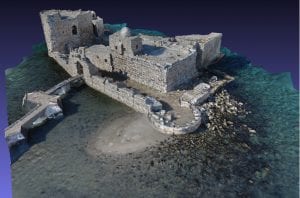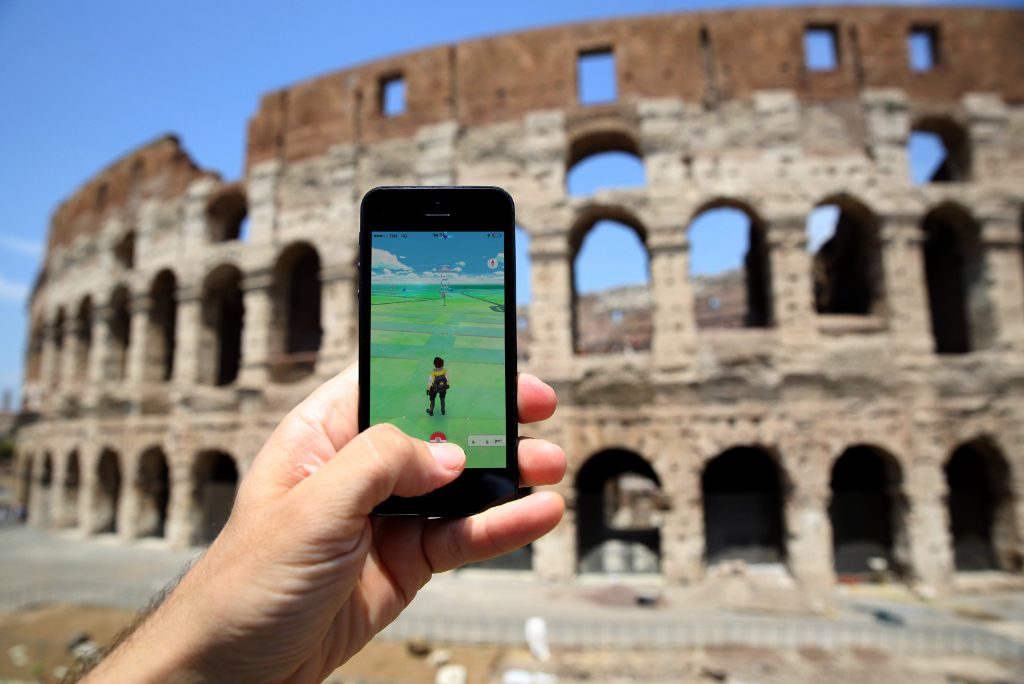Skift Take
For many cultural heritage sites affected by the pandemic, it's "game on." Med Gaims and Questo offer some promising models for destinations looking to engage tourists in the recovery.
Can tourist destinations tap the mechanics that make computer games so compelling to hook visitors on learning culturally and historically relevant information? That’s a question posed by some recent projects by Med Gaims and Questo.
The so-called “gamification of experiential tourism” aims to add to the travel experience some elements that software developers use to make video games and mobile apps engrossing. The goal is to broaden the appeal of historical sights to today’s digitally immersed travelers by fusing the virtual and real worlds. Visitors compete to earn points and badges in mobile app games or play physical board games and simulations of historical activities.
“We want to change tourism to something far from the traditional sun-and-sea type experience,” said Daniel Asmar, who oversees Med Gaims and is an associate professor of mechanical engineering at the American University of Beirut. “We’re supporting tourism with games that have cultural heritage as their backbone. We’re especially interested in supporting off-season tourism to lesser-marketed heritage sites.”
Cultural heritage organizations in Italy, Jordan, Lebanon, and Spain are the Med Gaims project’s pilot partners. They have been inviting game developers to create relevant games for their destinations.
Game development began after the European Union contributed $2.5 million (€2.1 million) to the project’s financing through the European Neighborhood Instrument (ENI). The project aspires to support 40 games at a dozen tourism sites in eight destinations.
For inspiration, developers built a basic online game as a prototype. It tells visitors the historical story of Vilanova, a Spanish town about 45 minutes south of Barcelona, Spain. The game has the retro feel of the original Oregon Trail game, but the hope is for developers to create more contemporary ideas.
In the Sardinian town of Alghero, organizers ran virtual hackathons in October and November to encourage game designers to take part. They awarded five winning teams about $70,000 (€60,000) in funding to create a mix of digital and analog games.
For instance, the CollezionAlghero game has visitors collect physical and digital stickers in albums to help solve games. Visitors check-in to specific places in Alghero with the help of a mobile app that uses a smartphone’s GPS signal. Special augmented reality tech enables players to challenge each other to win or lose stickers — which represent relevant artworks, historical characters, and culturally important locations.

An image from an early proposed version of a game illustrating the Battle of Saidon Sea Castle in Lebanon as part of the Med Gaims project. Source: Med Gaims.
In Sidon, the third-largest city in Lebanon and often known locally as Saida, one team of developers has proposed a game that young visitors could play. Visitors re-enact a historical battle at Sidon Sea Castle. Children play the historical role of defenders protecting the Saida Sea Castle from attacking ships. They virtually shoot projectiles at virtual ships as quickly as possible using a trebuchet, a historical military weapon that the visitors learn about while playing the game.
The organizers are trying to navigate a balance between using new educational tools while not just creating more reasons for people to glue their eyes to their screens rather than see the world around them. Their intention coincidentally reflects the message Skift conveyed in its recent megatrend The Time Is Now to Redefine Overtourism and Be More Responsible Travelers.
“Gamification is 75 percent psychology and 25 percent technology,” according to Gabe Zichermann, author of the book Gamification By Design.
So Med Gaims wants analog games, too. Ideas include simulations of games that children played in historical times or board games similar to Clue or Cluedo that young people might play while visiting a destination with characters and plot lines tied to historical events. The work on the analog games has been sluggish, though. The pandemic has shuttered most cultural sites, which has delayed progress.
The Jordan University of Science and Technology recently invited six gaming companies to tour the Um Qais archeological site, with the Jordanian Department of Antiquities’ help, to see what games they might create.
To encourage entrepreneurs to participate, Med Gaims lets developers keep the games’ intellectual property and develop similar versions elsewhere as long as the original cultural sites and co-developers can keep perpetual rights to use the game.
“One of our objectives is to see these entrepreneurs succeed,” Asmar said.
Brain Hacking for Réenchantement
Using games to engage children isn’t wholly new in tourism. Before Minecraft and Fortnite became sensations, custodians of tourism landmarks incorporated prizes, quizzes, and other aspects of gaming into the experiences they offer younger visitors. But the rising spread of handheld devices amplified sector interest in gamification.
Another player in tourism gamification is Questo, a startup that offers tour-like adventure games in more than 100 cities. It raised $1.5 million last month for its mobile-based city exploration games. Tourists and locals solve challenges and riddles based on their surroundings.
The United Nations World Tourism Organization (UNWTO) has named Questo the most disruptive hospitality startup.
The typical game relies on historical facts, local legends, and pop culture trivia and takes players to approximately a dozen spots over about two hours. Tourists or locals can play the games in the Questo iOS and Android apps and buy them from TripAdvisor, Expedia, GetYourGuide, Klook, and Musement.
Business partners have created half of the games. According to the company, travel businesses can use Questo’s tools to build their self-guided tours in about a month, with zero upfront or maintenance costs.
Phone-guided tours can help travel companies affected by the coronavirus pandemic have a way to recover quicker and even earn extra revenue, said CEO and co-founder Alex Govoreanu of the Romanian-based startup.
The Destination Asia Group, which a destination management company helping several southeastern Asian countries, is one company that has developed games on Questo for its clients, starting with a game focused on Bangkok.
“We foresee this being a real game-changer for our holiday-makers,” said Monique Arnoux, CEO of Destination Asia.
The Daily Newsletter
Our daily coverage of the global travel industry. Written by editors and analysts from across Skift’s brands.
Have a confidential tip for Skift? Get in touch
Tags: gamification, startups, travel startups
Photo credit: A view of the ancient ruins of the Colosseum in Rome and a mobile app for the gamification of experiential tourism. European Neighborhood Instrument
